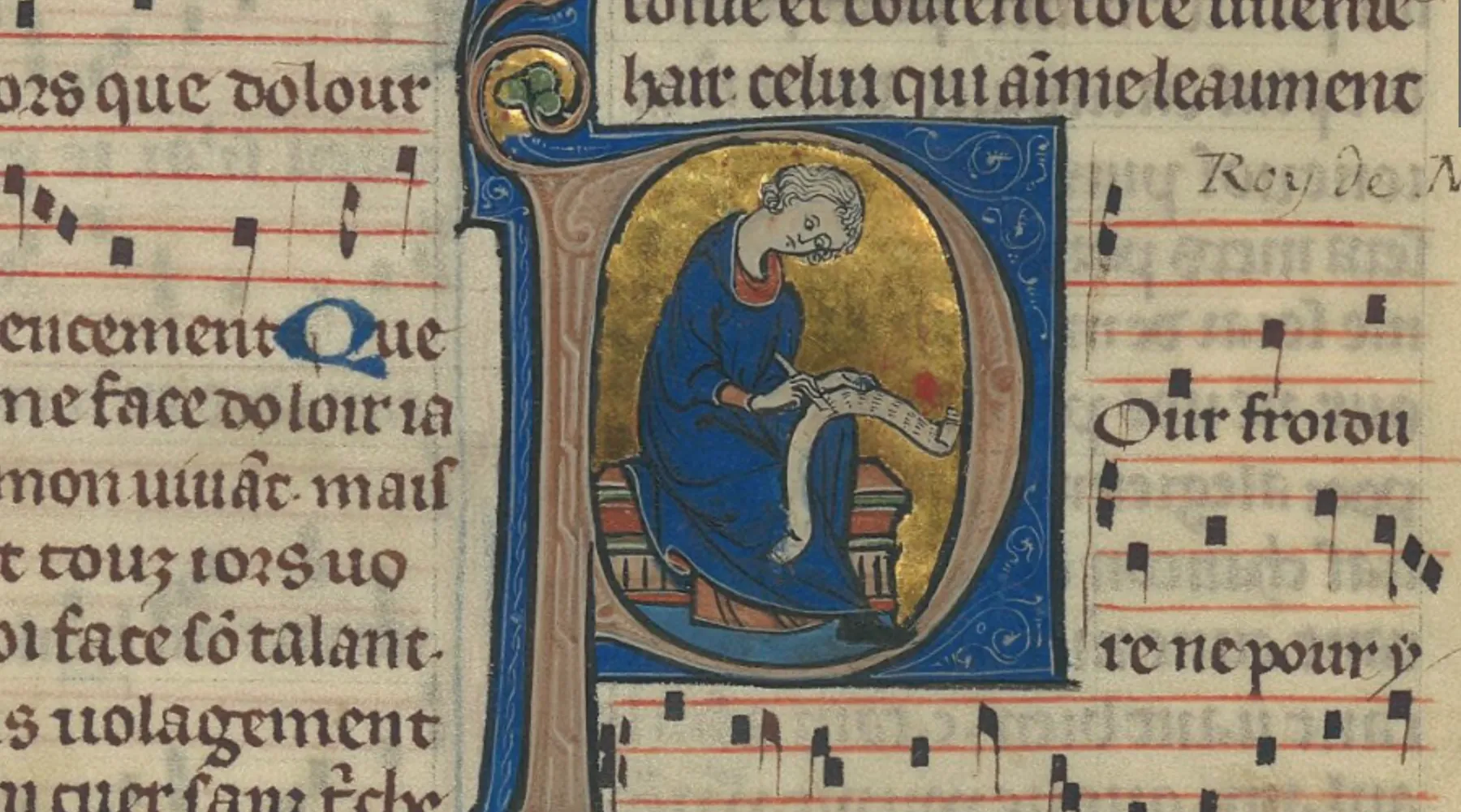Musical Lives: Towards an Historical Anthropology of French Song, 1100-1300 (MUSLIVE)

Source gallica.bnf.fr / Bibliothèque nationale de France, MS fr. 846 f. 94r.
How did song shape human experience in the medieval period? What can a deeper understanding of the lives of the people who composed and performed medieval song add to our understanding human history? Musical Lives: Towards an Historical Anthropology of French Song, 1100-1300 (MUSLIVE) is an interdisciplinary project which approaches one of the earliest written European vernacular (non-Latin) song traditions – French ‘trouvère’ song – as a transnational social practice. It investigates how making poetry and song influenced identities and connected people not only in the northern French space with which this tradition is usually associated, but also across the Mediterranean where song makers travelled on pilgrimage and crusade. The project will take a multilingual and multicultural approach to song practices, bringing contemporary Arabic, Hebrew, Occitan and French traditions into dialogue with each other.
Emerging in the northern French courts of the nobility during the twelfth century and remaining in practice until at least the early fourteenth century, around 2,200 trouvère songs survive, many of which can be connected to known historical figures. These songs were sung by the people who composed them and by others in their social circle, including professional performers. They often focused on themes of courtly love and loss. Working with musicologists, literary scholars, historians and performers, MUSLIVE will explore both songs and, through historical archival work, the lives of the people who made them, building networks of people who participated in and interacted through a shared song culture.
MUSLIVE will thus approach trouvère songs as poetic compositions of identifiable historical individuals which often include references to other known people and as a practice which is learned and passed on among members of a particular social group. It will also approach songs as audible works of art which are adapted, cited and modelled in other works, both musically and poetically. This includes not only what the words of songs and poetry mean but also how they sound – an aspect which will be investigated through performance. MUSLIVE will therefore not only build a network of people, but also a network of songs and poetry, exploring potential connections between trouvère song and other lyric traditions which shared the Mediterranean spaces to which French song makers travelled. In looking at French trouvère song alongside Arabic and Hebrew lyric poetry, MUSLIVE will ask: to what extent do songs and poetry in different languages and from different traditions provide evidence of cross-cultural human encounter? And what is it about the medium of poetry that enables it to bring people together?
MUSLIVE is a UKRI Frontier Research Grant (EP/X022501/1). It was successfully evaluated by the ERC and funded by the UKRI Horizon Europe guarantee.
Quant flors et glais et verdure s’esloigne,
Que cil oisel n’osent un mot soner,
Por la froidor chescuns dote et resoigne
Jusq’a bel tens qu’il resuelent chanter,
Lors chanterai...
When flower and glade and greenery withdraw,
When the birds dare not sound a word,
Since each dreads and fears the cold,
Until the warm weather comes when they are used to singing,
Then I will sing...
Gace Brulé (fl. 1190-1215)

Principal Investigator
Project websites
Funding
Funding Body: UK Research and Innovation (UKRI)
Amount: 2.15M
Period: April 2023 - March 2028

